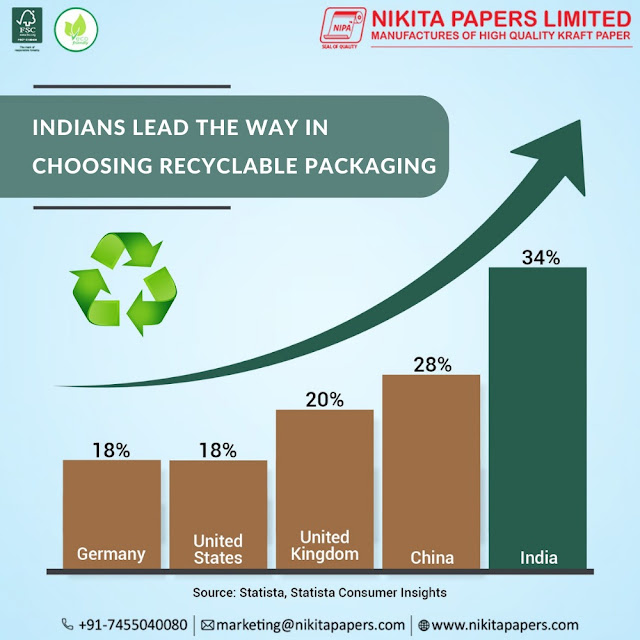The Impact of Technology on the Eco Friendly Paper Manufacturing Industry
The Effect of Technology on the Industry of Making Paper
The paper manufacturing industry has
been operating for centuries, but due to the impact of technology, it has seen
a significant transition in recent years. New technologies have enabled more
efficient and sustainable paper production, as well as the development of new
varieties of paper with distinct qualities. Demand for traditional paper
products has declined dramatically as a result of the advent of digital
communication and the push towards a more ecologically responsible future.
However, technology has also provided the paper manufacturing business with the
ability to adapt and change in order to remain relevant.
The introduction of technology has
also transformed the paper recycling process. Recycled kraft paper manufacturers today
utilise high-tech equipment to extract ink, staples, and other impurities from
the paper. The amount of waste generated during paper recycling has been
greatly reduced as a result of this technique. Environmentally friendly paper
makers are now employing recycled pulp to make paper, reducing the requirement
for new wood pulp. The adoption of high-tech equipment has lowered labour costs
and increased manufacturing efficiency as well. Lower production costs have
resulted, which have been passed on to consumers in the form of lower prices.
Paper mills are also finding it easier to comply with environmental
requirements as a result of these technological advancements.
Another major impact of technology on
the paper manufacturing industry has been the development of new types of
papermaking materials. These materials, such as recycled paper and bamboo
fibres, are more environmentally friendly than traditional papermaking
ingredients and can be utilised to create paper with a variety of specific
properties. Nikita Papers, a leading eco-friendly paper manufacturer uses a
variety of sustainable papermaking materials, such as recycled paper and bamboo
fibres. These resources enable Nikita Papers to manufacture a wide selection of
environmentally friendly papers, such as 70 gsm paper and recycled kraft paper.
Furthermore, technology has altered
paper makers' supply chain management. They can keep continuous communication
with suppliers, distributors, and customers by utilising integrated systems and
digital platforms. This level of connectivity guarantees effective inventory
management, on-time deliveries, and rapid reaction to changing market demands.
Nikita Papers known as leader in 70 Gsm paper manufacturers stands as a prime example of a company that has
embraced technology to optimize its supply chain operations.
Overall, technology has had a
favourable impact on the paper manufacturing industry. It has made paper more
inexpensive, environmentally friendly, and inventive. Technology has paved the
path for greener, more efficient, and networked paper manufacturing practises,
from automated production lines to data-driven analytics and recycling
breakthroughs. As the industry evolves, the seamless integration of technology
and sustainability will propel the paper production sector towards a more
environmentally responsible and lucrative future.

.jpg)

Comments
Post a Comment